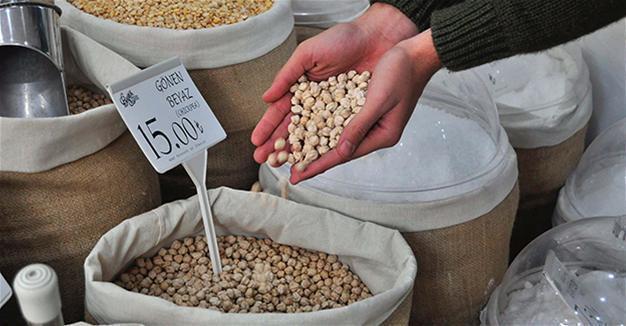Turkey’s annual inflation rises to around 11.3 pct in March, hitting highest since 2008
ANKARA

Turkey’s annual inflation hit its highest in more than nine years in March, surging 11.29 percent, as the prices of food, transportation and alcohol all showed double-digit increases, official data showed on April 3.
Consumer prices rose 1.02 percent since the previous month, data from the Turkish Statistics Institute (TÜİK) showed.
Annual inflation was at its highest since October 2008.
The highest annual increase was 21.71 percent in alcoholic beverages and tobacco, according to TÜİK data. It was followed by transportation with 17.69 percent of increase, health with 13.28 percent, food and non-alcoholic beverages with 12.53 percent and miscellaneous goods and services with 12.51 percent.
The highest monthly increase was 1.99 percent in clothing and footwear. In March 2017, the indices rose for food and non-alcoholic beverages by 1.93 percent, for health by 1.88 percent, for recreation and culture by 1.55 percent and for housing by 1 percent, according to TÜİK.
İş Investment economist Muammer Kömürcüoğlu said the largest impact on the inflation rate came from food prices and clothing prices.
“The core inflation continues to rise. We believe that the inflation would remain at double-digits throughout the year. There is an upward risk on our annual 9 percent yearly estimate,” said Kömürcüoğlu, as quoted by Reuters.
Economy Minister Nihat Zeybekci said the inflation rate would decline to double digits again by May, in televised comments on CNN Türk.
Turkey’s annual consumer price inflation hit double digits in February for the first time since April 2012.
Inflation has been stoked by chronic weakness in Turkey’s lira currency, which has been hit by political concerns and worries about the direction of monetary policy, according to analysts.
The Central Bank has resorted to using unorthodox methods to tighten, fueling investor concern it is wary of an outright rate hike.
After its last monetary policy committee meeting, the bank said in a statement that it would continue to use all available instruments in pursuit of the price stability objective.
“Tight stance in monetary policy will be maintained until inflation outlook displays a significant improvement. Inflation expectations, pricing behavior and other factors affecting inflation will be closely monitored and, if needed, further monetary tightening will be delivered,” it added on March 16.
President Recep Tayyip Erdoğan’s adviser Bülent Gedikli said on Twitter that the upswing in inflation was temporary, and the impact of government measures would be seen from the second quarter onwards. He did not elaborate on the measures.
“It is possible to say that the rise in inflation data is driven by the impact of foreign exchange rate and is temporary and that we will see the reflections of the measures taken from second quarter onwards,” he said following the release of the data, as quoted by Reuters.
Producer prices rose 16.09 percent year-on-year and 1.04 percent month-on-month, the data also showed.
 Turkey’s annual inflation hit its highest in more than nine years in March, surging 11.29 percent, as the prices of food, transportation and alcohol all showed double-digit increases, official data showed on April 3.
Turkey’s annual inflation hit its highest in more than nine years in March, surging 11.29 percent, as the prices of food, transportation and alcohol all showed double-digit increases, official data showed on April 3.